---main-image.jpg)
Pitru Paksha is a sacred period when Hindus pay homage to their ancestors through the performance of Shradh. The ritual involves offering prayers, food, and water to the departed souls of the family, ensuring peace for them and blessings for the living lineage.
Spanning a fortnight of lunar days, this observance is also known by regional names such as Pitra Paksha, Pitri Pokkho, Kanagat, Jitiya, Mahalaya Paksha, Apara Paksha, and Sola Shradh. Its timing differs slightly in regional calendars.
According to the South Indian Amavasya system, it begins in the lunar month of Bhadrapada from the full moon day or the day following it. In the North Indian Purnimanta system, it is observed in the lunar month of Ashwin, starting from the full moon of Bhadrapada or the day after.
Though the calendars differ, the essence remains identical, performing Shradh, Tarpan, and related rites to honor ancestors. Death rituals performed in this fortnight hold special potency, making this period especially auspicious for Shradh ceremonies.
The occasion coincides with the Sun’s southward journey, known as Dakshinayana, symbolizing a time of introspection, remembrance, and gratitude toward forefathers.
Meaning of Pitru Paksha (Shradh)

Pitru Paksha, also known as Shradh, is a sacred period in Hindu tradition dedicated to honoring and appeasing ancestors. It spans sixteen lunar days, during which families perform rituals to express gratitude and fulfill their duties toward departed forefathers. A key aspect of Shradh is preparing and offering food that the deceased once enjoyed in their lifetime, symbolizing nourishment and comfort for their souls.
Purpose and Significance
These sixteen days form a spiritually charged period that helps departed souls detach from earthly bonds and move smoothly toward higher realms. Through Shradh, families not only provide peace to their ancestors but also remove hindrances that might arise from unfulfilled duties toward them. This practice ensures that the souls continue their journey without obstruction, aided by the devotion of their descendants.
Connection with Karma
Hindu philosophy holds that karmas of past lives continue into the present one, and with them comes a responsibility toward ancestors. Performing Shradh during Pitru Paksha clears the karmic debts owed to forefathers, providing them comfort and allowing the living descendants to progress without ancestral burdens.
Scriptural Authority
The significance of Shradh is recorded in sacred texts including the Agni Puran, Vayu Puran, and Garuda Puran. These scriptures highlight the importance of offering water, food, and prayers as acts of duty and reverence. Shradh is one of the oldest rituals in Hinduism, sustained across generations and also observed in different forms by other faiths. It remains a living tradition performed in memory of departed souls, ensuring both spiritual continuity and ancestral blessings.
Pitru Paksha 2026 Dates & Tithis
Tithi list (Ashwina Krishna fortnight): September 26 (Bhadrapada Purnima) to October 10 (Amavasya); includes daily entries from Purnima to Amavasya for ancestral ritual planning.
Sep 26:
Bhadrapada, Shukla Purnima (Saturday)
Sep 27:
Ashwina, Krishna Pratipada (Sunday)
Sep 28:
Ashwina, Krishna Dwitiya (Monday)
Sep 29:
Ashwina, Krishna Tritiya (Tuesday) —
Maha Bharani Nakshatra Shraddha
Sep 30:
Ashwina, Krishna Chaturthi / Panchami (Wednesday)
Oct 1:
Ashwina, Krishna Shashthi (Thursday)
Oct 2:
Ashwina, Krishna Saptami (Friday)
Oct 3:
Ashwina, Krishna Ashtami (Saturday)
Oct 4:
Ashwina, Krishna Navami (Sunday)
Oct 5:
Ashwina, Krishna Dashami (Monday)
Oct 6:
Ashwina, Krishna Ekadashi (Tuesday)
Oct 7:
Ashwina, Krishna Dwadashi (Wednesday) —
Magha Nakshatra Shraddha
Oct 8:
Ashwina, Krishna Trayodashi (Thursday)
Oct 9:
Ashwina, Krishna Chaturdashi (Friday)
Oct 10:
Ashwina, Krishna Amavasya (Saturday) —
Sarva Pitru Amavasya (Mahalaya Amavasya)
Importance of Shradh

Shradh holds central importance in Hindu tradition as the prescribed way of honoring forefathers and fulfilling the obligations owed to them. Vedic scriptures describe that the souls of three immediate generations of ancestors dwell in Pitru Loka, the realm governed by Yama, positioned between earthly life and higher celestial planes. When descendants perform Shradh, offerings are directed to these three generations, sustaining them and supporting their onward journey. Once a newer generation joins Pitru Loka, the earlier one progresses to higher planes and unites with the divine, no longer requiring offerings.
Pitru Paksha and Cosmic Alignment
.jpg)
Pitru Paksha begins with the Sun’s movement into Libra, marking a period when ancestors are believed to leave Pitru Loka and reside in the homes of their descendants until the Sun moves into Scorpio at the next full moon. The Garuda Puran explains that Shradh during the dark fortnight of this period pleases the ancestors, who then bless their families with health, wealth, knowledge, and longevity, guiding them ultimately toward salvation.
Impact in Kaliyug
In Kaliyug, where spiritual practice is often neglected, many souls remain bound to earthly attachments and become unsettled after death. These unsatisfied subtle bodies linger in Pitru Loka or near the places where descendants keep their memories alive through pictures, flowers, or ritualistic objects. Such practices, though performed out of love, can unintentionally bind the ancestors and delay their spiritual progress.
Repaying Ancestral Debt
Failing to perform Shradh and keeping ancestors tied to gross symbols prevents their forward movement, leading to disturbances in the lives of descendants. Scriptures emphasize Shradh as a way to repay the ancestral debt, provide spiritual energy for ancestors to advance, and remove obstacles caused by their unrest. Through this ritual, descendants fulfill their responsibility and secure blessings that strengthen both their spiritual and material lives.
Blessings and Relief from Pitru Dosha
Pitru Paksha is considered the most sacred window to perform Shradh because ancestors are said to visit the earthly plane during this fortnight. Performing Shradh throughout this period pacifies forefathers, dissolves Pitru Dosha, and ensures their blessings flow to the family. These blessings manifest as peace, prosperity, harmony, and joy, supporting descendants in all spheres of life while ensuring the ancestors’ liberation.
Legends Associated with Shraddh

The traditions of Shraddh are not only rooted in Vedic injunctions but also illuminated through powerful legends that highlight the value of honoring ancestors. These stories illustrate why offerings of food, water, and devotion are central to maintaining harmony between the living and the departed.
One of the most striking narratives comes from the Mahabharata and centers on Karna, the son of Surya. Karna was known for his unmatched generosity, giving away wealth and jewels throughout his life. Yet after his death in the Kurukshetra war, when he reached Pitru Loka, he was offered only gold and gems instead of food and water. Confused, he asked Yama why this was so. Yama explained that Karna had never offered food or water to his ancestors, and therefore could not receive it in return. Realizing his mistake, Karna pleaded for the chance to make amends. Granted a return to earth, he performed Shraddh by offering food and water to his forefathers. Through this act he not only found peace for himself but also established a model for descendants, showing that generosity must include honoring one’s ancestors through Shraddh.
Another deeply significant tale is linked to Bhagwan Rama. After the passing of his father, King Dasharatha, Rama traveled to the sacred city of Gaya along with Sita and Lakshmana to perform Shraddh rites. Gaya, sanctified by the presence of Bhagwan Vishnu’s footprint at the Vishnupad Temple, became the foremost site for Pind Daan and Shraddh. Rama’s act of devotion at this sacred place reinforced its reputation as a powerful pilgrimage site where offerings for ancestors hold unmatched spiritual merit.
Together, these legends form the foundation of Shraddh practice. Karna’s story teaches the necessity of food and water offerings, while Rama’s observance at Gaya underscores the sanctity of performing these rites at holy sites. Both narratives remind us that Shraddh is more than ritual; it is an expression of duty, gratitude, and devotion that binds generations and secures blessings across time.
What is Pitra Dosha in Kundali

Pitra Dosha is a karmic condition reflected in a horoscope that arises when ancestors are not at peace due to unfulfilled duties, unresolved karmas, or improper performance of last rites. It signifies that forefathers have remained dissatisfied for some reason, and this unsettled state creates imbalances in the lives of their descendants.
Astrological Indications
According to Vedic astrology, Pitra Dosha is often associated with unfavorable planetary combinations, particularly involving the Sun and Rahu. When these placements occur, they mark a karmic warning in the horoscope. This condition shows that the ancestral line carries unresolved issues, often due to negative deeds of forefathers or due to unnatural or untimely deaths within the family.
Spiritual Cause
When religious rites such as Shraddh or Tarpan are not performed at the time of death, or when ancestors remain bound to worldly attachments, their souls do not attain peace. This unrest manifests as Pitra Dosha in the kundali of descendants. Such souls are considered trapped in Pitru Loka until their karmic balance is addressed through rituals and offerings by their lineage.
Impact of Pitra Dosha
The presence of Pitra Dosha in a horoscope can bring hardships in personal and professional life, delays in progress, recurring health or relationship issues, and an overall sense of obstruction in the family’s growth. These challenges are regarded as signs of ancestral dissatisfaction and the need to perform corrective rituals.
Remedies and Nivaran
To pacify Pitra Dosha, rituals such as Pitru Tarpan, Shraddh, and Pitra Dosha Nivaran Puja are prescribed. These practices offer food, water, and prayers to ancestors, ensuring their peace and liberation. By performing these remedies with devotion, descendants repay ancestral debts, dissolve karmic burdens, and invite blessings for harmony, prosperity, and spiritual upliftment.
Signs and Symptoms of Pitru Dosha

Pitru Dosha in a horoscope often reveals itself through recurring struggles within the family that cannot be explained by ordinary means. These difficulties are considered the direct influence of unsettled ancestral energy and manifest in several areas of life.
Impact on Children and Family Lineage
Families affected by Pitru Dosha frequently face challenges related to childbirth. This may appear as recurrent miscarriages, difficulty conceiving, or the birth of children who are often ill. In some cases, no male child is born to continue the lineage, or there may be no child at all. Children may also show disinterest in marriage, or despite repeated efforts, suitable matches remain elusive.
Financial Struggles
Scarcity and lack of fortune are common in households under Pitru Dosha. Families may experience cycles of financial instability, failure in ventures, or repeated obstacles in career progress. Debts tend to accumulate, and despite sincere efforts, repayment becomes difficult. Progress remains stalled, and the family often struggles to rise above poverty or resource shortages.
Recurring Problems and Instability
Life under Pitru Dosha is marked by recurring issues in both home and workplace with no apparent cause. These cycles of difficulty generate stress and disharmony. Peace and harmony within the home are absent, and those entering the dwelling often feel heaviness or negative energy. Despite continuous efforts, overall growth and development remain blocked.
Health and Marriage Concerns
Families affected may face constant health problems, leading to both physical and mental stress as well as financial strain from medical expenses. In marriage, individuals may face repeated delays, broken engagements, or incompatibility with partners, making it difficult to settle at the right time or with the right person.
The presence of Pitru Dosha is recognized through hardships in childbirth, repeated illnesses, financial instability, recurring obstacles, lack of harmony at home, struggles in marriage, and persistent health issues. These difficulties reflect the dissatisfaction of ancestors and highlight the need for rituals such as Shraddh, Tarpan, or Pitru Dosha Nivaran Puja to restore balance and bring peace to both the departed souls and the living descendants.
Book Pitru Dosh Nivaran Puja at Trimbakeshwar
Dos and Don’ts During Pitru Paksha
Observing Pitru Paksha requires discipline and adherence to certain restrictions that preserve the sanctity of the rituals.
| Dos | Don’ts |
|---|---|
| Perform Shraddh rites with sincerity | Do not organize marriages, engagements, roka ceremonies, or housewarmings |
| Offer Tarpan with water, sesame, barley, and kusha grass | Avoid buying vehicles, houses, jewelry, clothes, or shoes |
| Prepare pindas from rice, milk, honey, and Gangajal | Do not cut hair, trim nails, or shave |
| Cook sattvic foods like kheer, lapsi, rice, dal, guar, yellow pumpkin | Avoid non-vegetarian food, eggs, alcohol, onion, garlic, brinjal, and tamasic foods |
| Use copper or silver vessels and banana leaves for offerings | Do not eat prohibited pulses and vegetables like masoor dal, black urad, black chana, potatoes, arbi, radish, cucumber, bitter gourd |
| Feed Brahmins and donate food, clothing, and dakshina | Never visit prominent temples for personal petitions |
| Offer water to a banyan tree and to Bhagwan Shiva | Do not consume stale food, paan, supari, or tobacco |
| Chant mantras of Sri Gurudeva Dattatreya and other ancestral hymns | Refrain from tamasic activities and indulgences |
| Maintain celibacy, simplicity, and sattvic living | Do not perform griha pravesh or start new ventures |
Foods to Avoid During Pitru Paksha or Shradh

Dietary discipline is an important part of observing Pitru Paksha and Shradh. Since the period is devoted to ancestors, sattvic food that is pure, simple, and light is encouraged, while tamasic and rajasic foods are strictly prohibited. Avoiding these items ensures the sanctity of offerings and helps maintain the right spiritual atmosphere.
Non-vegetarian and Addictive Substances
All forms of non-vegetarian food, including meat, fish, and eggs, are strictly forbidden. Alcohol is also prohibited, as both are considered impure and incompatible with ancestral rituals. Paan, supari, and tobacco must also be avoided, as they are tamasic in nature and disturb the sattvic state required for Shradh.
Pulses and Grains to Avoid
Certain pulses and grains are excluded during this period. These include chickpeas, black chana, masoor dal, black urad dal, and chana sattu. Common staples such as rice, wheat, potatoes, radish, and colocasia (arbi) are also avoided, as scriptures classify them as unsuitable for Shradh offerings.
Spices and Salts to Exclude
Black mustard seeds, cumin seeds, and black salt are considered inauspicious for Pitru Paksha meals. Their strong flavors and associations with tamasic qualities make them unsuitable for rituals meant to maintain purity and simplicity.
Vegetables to Avoid
Vegetables like onion, garlic, brinjal, bitter gourd, and cucumber are not used. These are categorized as tamasic or spiritually unclean during Shradh, and their consumption is believed to weaken the merit of the rituals.
Other Restrictions
Stale food must never be consumed or offered during Pitru Paksha, as freshness symbolizes purity and devotion. All offerings should be freshly prepared, ideally in copper or silver vessels, and served on banana leaves or leaf cups to uphold tradition.
By strictly avoiding tamasic foods, non-vegetarian items, stimulants, and certain pulses, grains, and vegetables, descendants preserve the sanctity of Pitru Paksha. This discipline ensures that Shradh rites are performed in a state of purity, thereby granting peace to ancestors and blessings to the family.
Benefits of Shradh in Pitru Paksha
Shradh in Pitru Paksha is one of the most significant rituals for honoring forefathers, as it directly impacts both ancestors and descendants. By offering food, water, and prayers with devotion, families not only provide peace to departed souls but also unlock blessings that shape their own lives with stability and progress.
Restoring Harmony and Peace
Shradh restores balance in the household by pacifying ancestors who might otherwise remain unsettled. Once satisfied, they withdraw disturbances that manifest as quarrels, strained relationships, or lack of unity. Their blessings bring calm, strengthen emotional bonds, and infuse the family with lasting peace.
Pitru Dosh Nivaran
Pitru Dosha, caused by ancestral dissatisfaction or unfulfilled karmas, leads to recurring problems in life. Shradh acts as Pitru Dosh Nivaran, dissolving these afflictions through offerings and prayers. As ancestors attain satisfaction, karmic debts are cleared, and descendants are freed from obstacles, delays, and setbacks.
Health and Obstacle Removal
Unexplained health issues and constant hurdles are often signs of ancestral unrest. By performing Shradh, families provide relief to their forefathers, which clears the lingering karmic burdens affecting the living. This results in improved health, relief from chronic problems, and removal of persistent barriers in personal and professional growth.
Financial Stability and Security
Instability, debt, and scarcity frequently trace back to unsettled ancestral energy. Through Shradh, blessings are redirected toward financial well-being. Families experience greater stability, success in ventures, and freedom from cycles of poverty, accompanied by a sense of mental peace and security.
Progress in Career and Marriage
Delays in career advancement or repeated difficulties in marriage alliances are common outcomes of Pitru Dosha. Shradh removes these unseen blocks, paving the way for timely marriages, professional recognition, and smoother life transitions. It ensures that progress flows without ancestral hindrances.
Positive Energies in the Home
After Shradh, the home environment shifts noticeably. Negative vibrations caused by unsettled ancestors are replaced with harmony, positivity, and balance. The household becomes more nurturing, encouraging focus, peace of mind, and growth in both spiritual and material aspects.
Shradh in Pitru Paksha is both a sacred duty and a transformative practice. It provides peace to ancestors, removes Pitru Dosha, restores harmony, and secures blessings that bring health, prosperity, stability, and growth to descendants. By observing this ritual with sincerity, families ensure continuity of positive energies and protection for future generations.
How to Do Pitru Paksha Puja at Home (Quick Reference)

Performing Pitru Paksha rituals at home requires devotion, simplicity, and adherence to the basic vidhi. The following steps serve as a quick practical guide:
Essentials and Setup
Begin by purifying yourself with a bath and preparing a clean space facing the south direction, which is associated with ancestors. Place a wooden stool covered with a white cloth, and spread barley and sesame seeds upon it. Position either a photograph of the ancestor or kusha grass, which symbolizes their presence. With folded hands, invite the ancestors by name and lineage to accept the offerings.
Water Offering (Tarpan)
Prepare a vessel of copper or bronze filled with water. To this add raw cow’s milk, rice, barley, and sesame seeds. While reciting mantras such as Pitru Gayatri, Avaahanam, and other Pitru-specific chants, offer libations of this water slowly from cupped palms, directing it southward. This step quenches and satisfies the ancestral souls.
Offering Pindas
Prepare pindas from cooked rice mixed with honey, milk, and Gangajal. Place them on clean leaves in front of the ancestor’s image. The pindas symbolize nourishment for the subtle bodies of forefathers. Once the puja concludes, the pindas should either be offered to a cow or immersed in flowing water, ensuring they are accepted by nature and reach the spiritual realm.
Charity and Gratitude
As part of Shraddh, feed Brahmins with sattvic food and donate clothes, dakshina, or other essentials. This act symbolizes the continuation of generosity on behalf of the ancestors and ensures that the ritual carries both spiritual and social value.
Completion
Conclude the puja with prayers of gratitude, seeking peace for the departed and blessings for the family. Maintain sincerity and sattvic conduct throughout the fortnight, keeping the environment pure and free of tamasic influences.
Regional Variations of Pitru Paksha
Names Across Regions
Pitru Paksha is observed throughout India but is known by different names depending on local tradition. In North India it is often called Pitra Paksha, while in Bengal the term Pitri Pokkho is used. In Rajasthan and nearby regions it is popularly referred to as Kanagat. In Bihar and eastern parts of Uttar Pradesh, the period is also remembered as Jitiya when it overlaps with certain local observances. Other names include Mahalaya Paksha, Apara Paksha, and Sola Shradh, all highlighting the same sixteen day cycle of rituals dedicated to ancestors. These variations reflect regional language and cultural nuances but carry the same devotional essence.
Calendar Differences
The calculation of Pitru Paksha differs slightly between the North and South Indian calendars, though the rituals remain identical. In the South Indian Amavasya system, Pitru Paksha begins in the lunar month of Bhadrapada, starting from the day after the full moon. In the North Indian Purnimanta system, it is observed in the month of Ashwin, beginning from the full moon day of Bhadrapada or the following day. Despite this difference in calculation, the actual fortnight is the same across both traditions, ensuring the period of Shraddh and Tarpan rites aligns for all regions.
Unified Significance
Although names and calendar systems differ, the essence of Pitru Paksha is unchanged. Families across India use this fortnight to perform Shraddh and Tarpan, repay ancestral debts, and seek blessings for harmony and prosperity. The unity of purpose across regional variations emphasizes the shared importance of honoring forefathers in Hindu tradition.
Mantras for Pitru Paksha Puja and Tarpan
Chanting mantras with sincerity is considered essential to invite, satisfy, and bless the souls of forefathers. Below are the key mantras with their meanings and instructions.
Pitru Gayatri Mantra
This mantra is chanted 11 times at the beginning of the ritual to invite the ancestors.
In English:
Om Pitru Ganaaya Vidmahe Jagat Dhaariney Dheemahi Tannoh Pitro Prachodayaat.
In Hindi:
ॐ पितृगणाय विद्महे जगत धारिणी धीमहि तन्नो पितृो प्रचोदयात्।
Avaahanam Mantra
This mantra is used to respectfully invoke ancestors and request them to accept the offerings.
In English:
Om Aagachhantu Me Pitru Emam Grihanantu Jalaanjalim.
In Hindi:
ॐ आगच्छन्तु मे पितर एवं ग्रहन्तु जलान्जलिम।
Meaning:
“I wholeheartedly invite my ancestors into my home to accept this offering of sesame seeds and water to quench their hunger and thirst.”
Pitru Mantra
This mantra is chanted while offering water mixed with black sesame seeds. It must flow between the thumb and index finger toward the south, the direction of ancestors.
In English:
Gotre Asma Pitaamah (name of forefathers) Vasurupat Triptayaamidam Tilodaham Va Jalaanjalim Tasmai Swadhaa Namaha… Tasmai Swadhaa Namaha… Tasmai Swadhaa Namaha.
In Hindi:
गोत्रे अस्मत्पितामह (पितामह का नाम) वसुरूपत् तृप्यतमिदं तिलोदकम गंगा जलं वा तस्मै स्वधा नमः, तस्मै स्वधा नमः, तस्मै स्वधा नमः।
Gayatri Mantra
The universal Gayatri Mantra is also recited for overall sanctity and divine blessings.
In English:
Om Bhur Bhavah Swaahaa Tat Savitru Varenyam Bhargo Devasya Deemahi Dheeyo Yonah Prachodayaat.
In Hindi:
ॐ भूर्भुवः स्वः तत् सवितुर्वरेण्यं। भर्गोदेवस्य धीमहि। धियो यो नः प्रचोदयात्।
Practical Notes:
• Use black sesame seeds in your right hand while chanting the Pitru Mantra.
• Water should flow between the thumb and index finger toward the south while sitting facing east.
• After reciting the mantras, you may also express your personal prayers to your ancestors and request them to proceed peacefully to Vishnu Lok, where you have desired their entry through your devotion.
Pujas and Rituals Associated with Pitru Paksha
Pitru Paksha is observed as a dedicated period of sixteen lunar days to honor ancestors through Shraddh and Tarpan rituals. These rites are performed to express gratitude, repay ancestral debts, and ensure peace for departed souls. Since the focus of these offerings is entirely on forefathers, no prasad is distributed among the living after the puja, keeping the ritual exclusively directed to the ancestors.
Shraddh Puja and Tarpan
Shraddh Puja is the central practice during Pitru Paksha. Families prepare food that includes items favored by their ancestors during their lifetime and offer it symbolically through the Shraddh ceremony. Alongside food offerings, Tarpan is performed with water mixed with sesame seeds and other sanctified elements, poured while chanting mantras. This combination of Shraddh and Tarpan nourishes and quenches the ancestors, fulfilling the spiritual obligations of the descendants.
Scriptural Basis and Purpose
As detailed in texts like the Brahma Purana and Garuda Purana, rituals conducted during Pitru Paksha create a bridge between the living and the departed. These rites enable the souls of ancestors to gain satisfaction and move forward in their spiritual journey toward liberation. The performance of Shraddh Puja and Tarpan during this period not only grants peace to ancestors but also secures their blessings for prosperity, harmony, and protection of the family lineage.
Group Pitru Paksha Shradh Puja at Trimbakeshwar
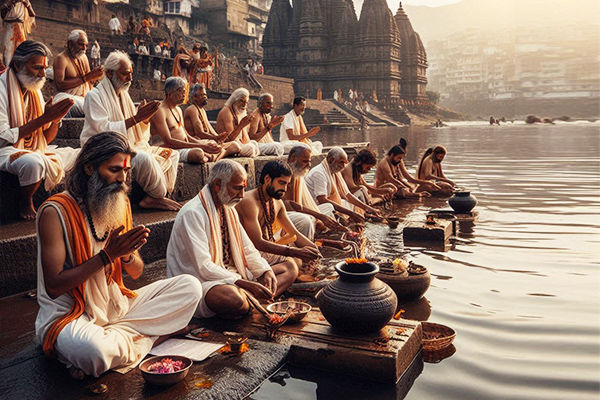
Thus, doing Shradh Puja in Pitru Paksha is immensely important both for the well-being of oneself and of the souls of one’s ancestors. It is believed that when one’s ancestors are pleased, even Gods are pleased, and the native is showered with blessings.
Group Pitru Paksha Shradh Puja

Puja for peace of departed soul. Shradh or Shraadh, also spelt sraddha, in Hinduism, is a ceremony performed in honour of a dead ancestor. The rite is both a social and a religious responsibility enjoined on all male Hindus. The importance given in India to the birth of a son reflects the need to ensure that there will be a male descendant to perform the shradh ceremony after one’s death.
Tripindi Shraadh Puja
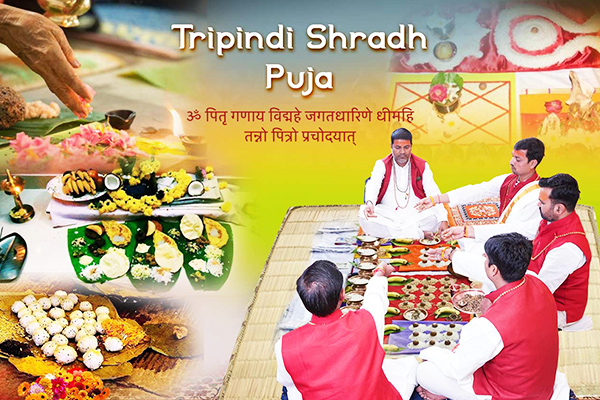
It helps cleanse all the sins, and reactions of misdeeds of the departed souls. It helps them rest in peace. It liberates your family from all the hardships and failures.
Narayan Nagbali Puja
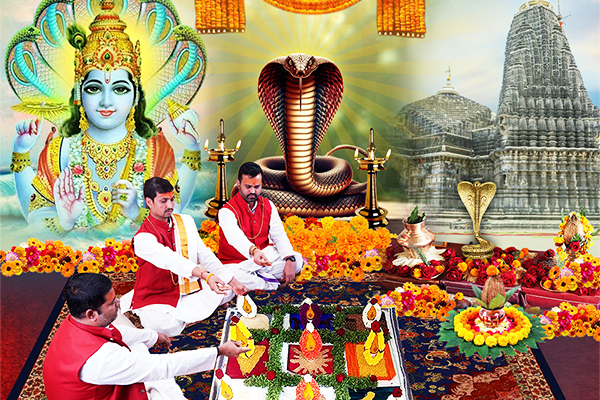
Narayan Nagbali is a three-day Hindu ceremony held at Trimbakeshwar, Nashik District, Maharashtra, India. Families conduct the Narayan Nagbali ceremony to release the spirits of family members who died an untimely death or Durmaran. Death is referred to be untimely or Durmaran in the Indian language when it occurs for an improper reason and at an inappropriate age.
Group Narayan Nagbali Rites
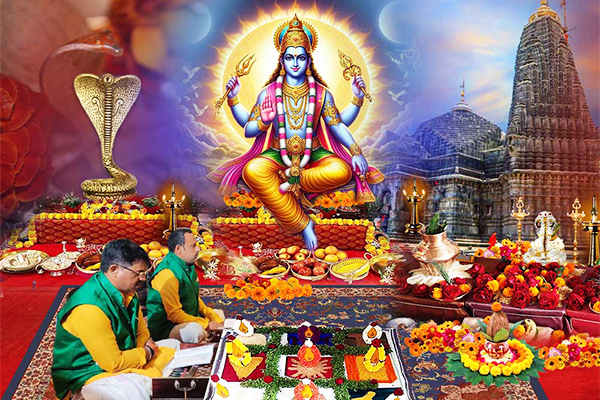
Narayan Nagbali puja consists of two different rituals. Narayan Bali is done to get rid of the ancestral curse (pitru dosh /Pitru Shaap), while Nagbali is done to get rid of the sin of killing snakes, especially cobra, which are worshipped in India. Narayan Nagbali is the most important vidhi done in the name of ancestors for their souls to get free from this world and attain the highest state of liberation from this cycle of human birth and death.
Pitru Dosh Nivaran Puja
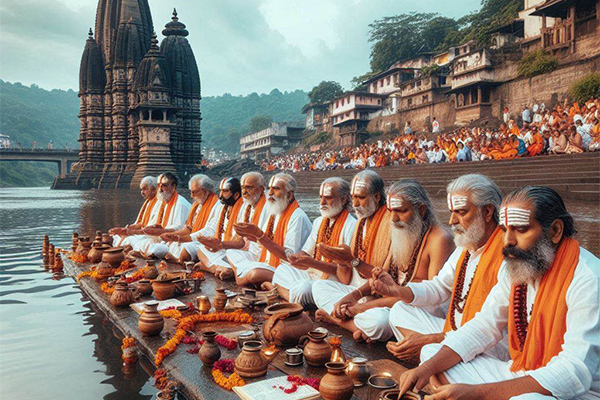
Pitru Dosha Nivaran Puja is done to rectify the Pitru Dosha in one's horoscope. The Pitru Dosha is caused when one's forefathers and ancestors have not received proper last rites or Shradha or are unhappy or unfulfilled for some reason and due to negative deeds of one's forefathers.
Mahalaya Shraadh Puja

This puja is performed for an individual on the last day of the Shraadh period and is dedicated to all the ancestors, including those who have been forgotten. This marks the end of the Pitru Paksha, and the Mahalaya Shraadh puja performed on this day ensures a complete liberation of all the ancestors who bless protection, peace and prosperity.

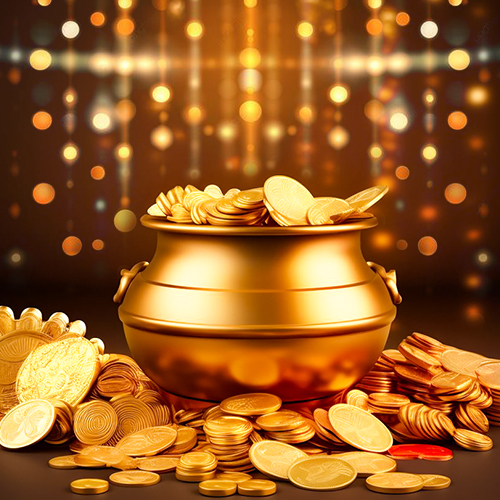
-in-Astrology.jpg)
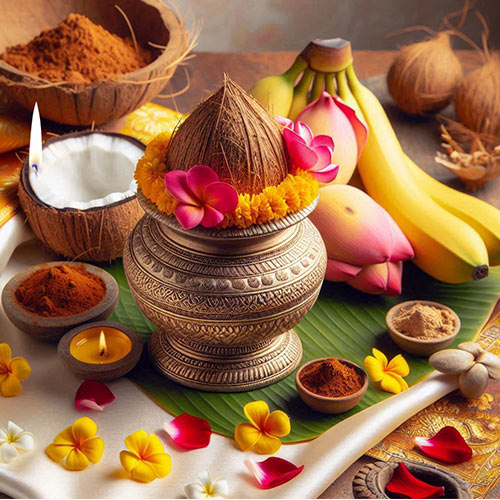
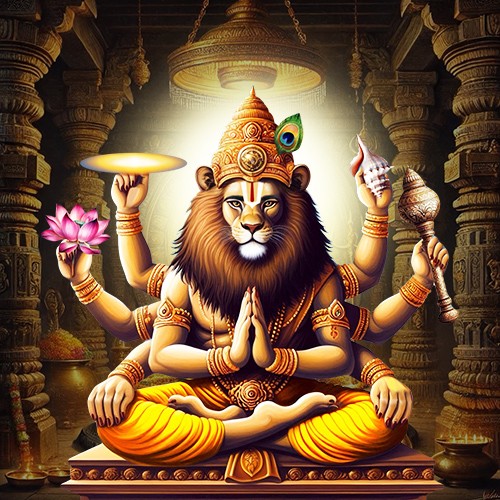
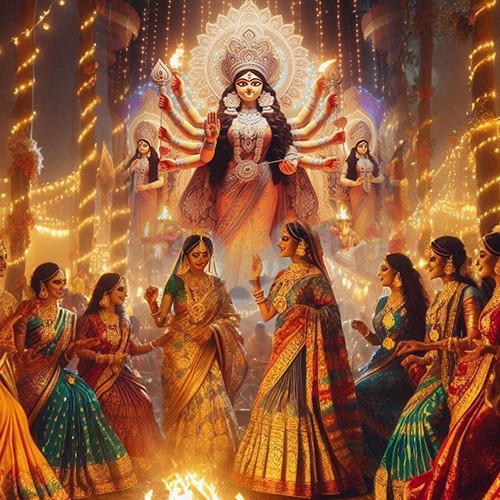
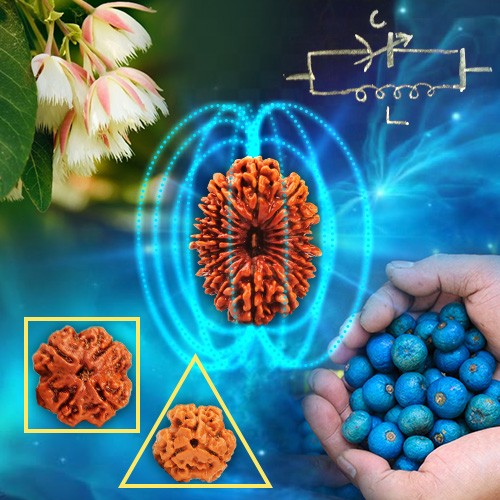

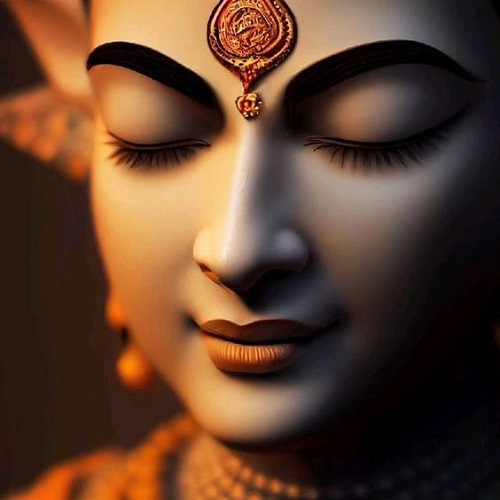
.jpg)
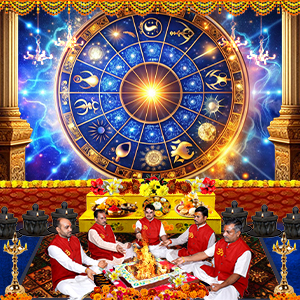
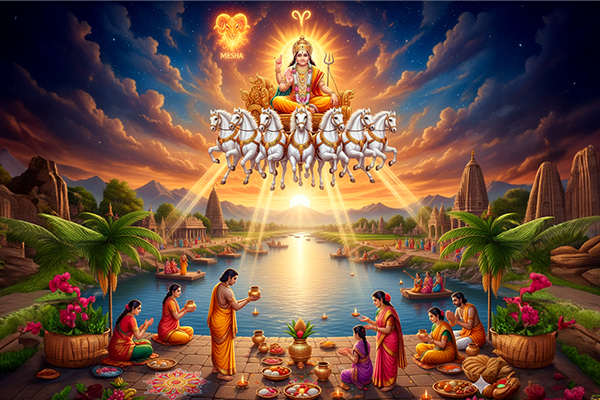
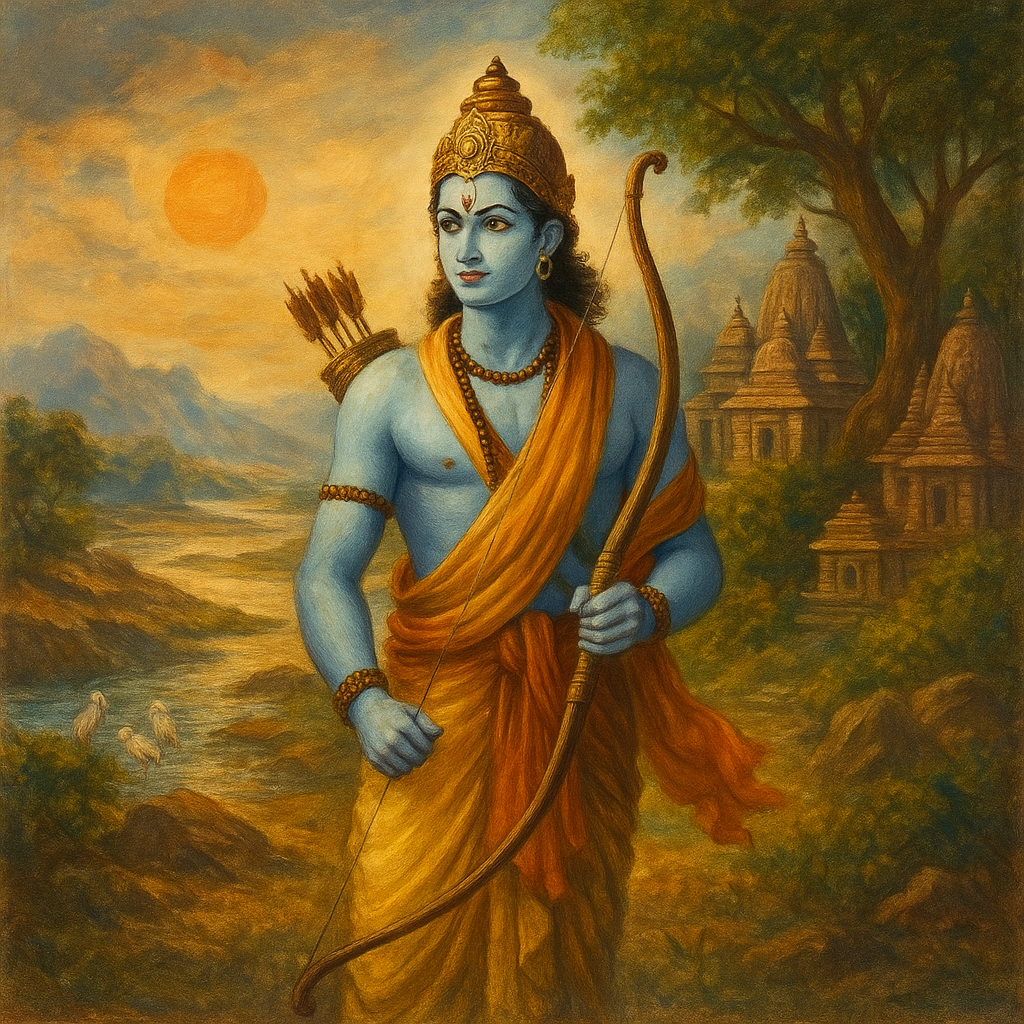
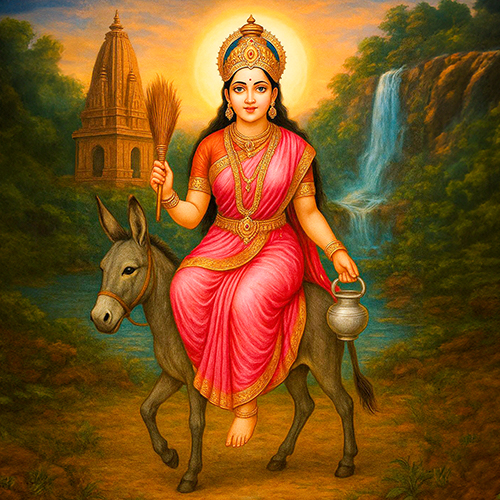
Charisha
|September 7, 2025
Do you offer food,tarpan and pindas everyday of Pitru Paksha?
Baburao Ramchandra Mane
|August 2, 2024
Death 15/08/2022 Time 5.45 Warsh shradh date sanga.